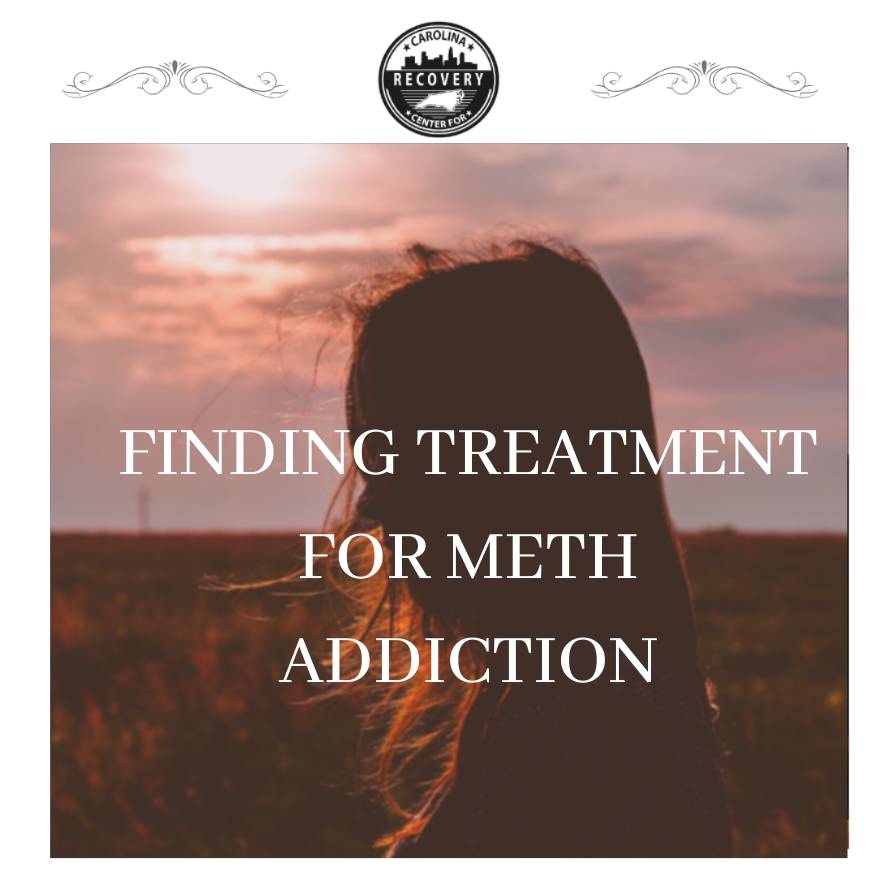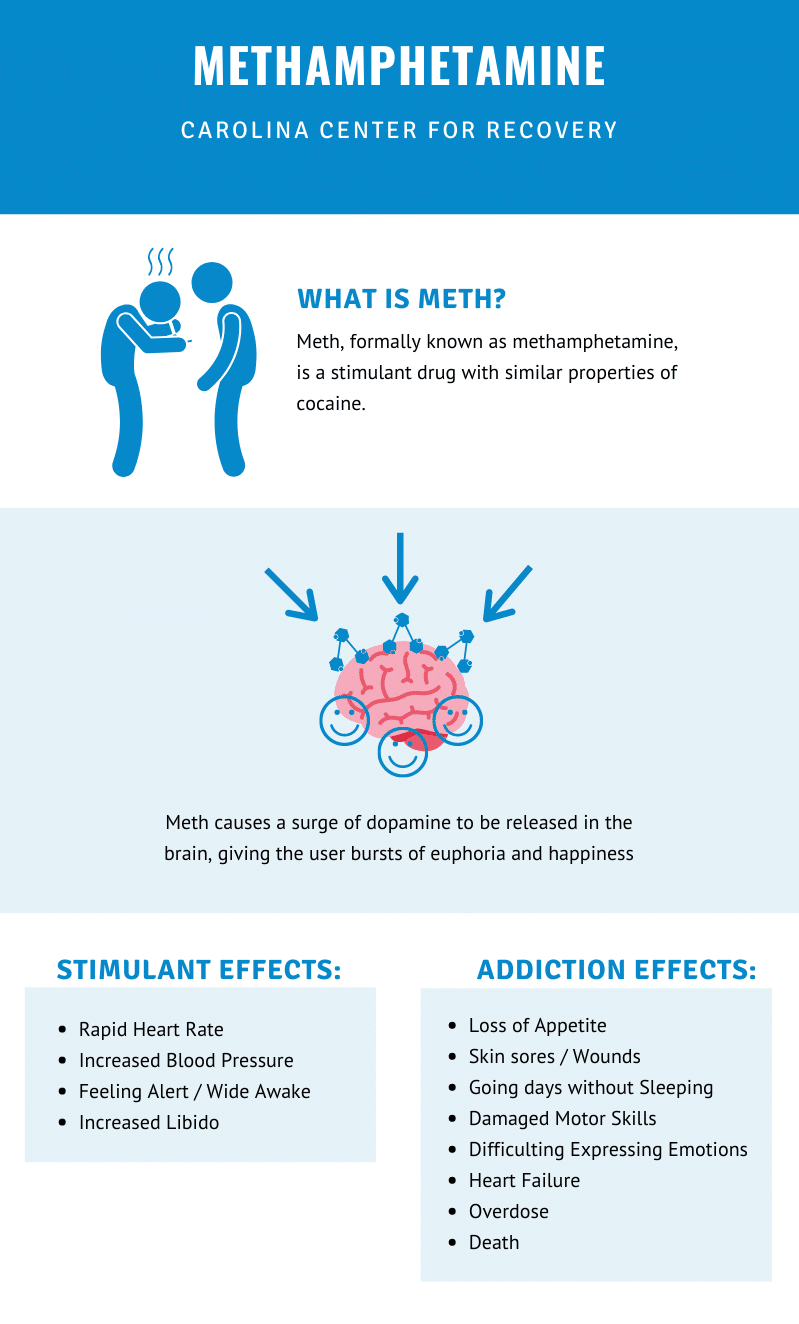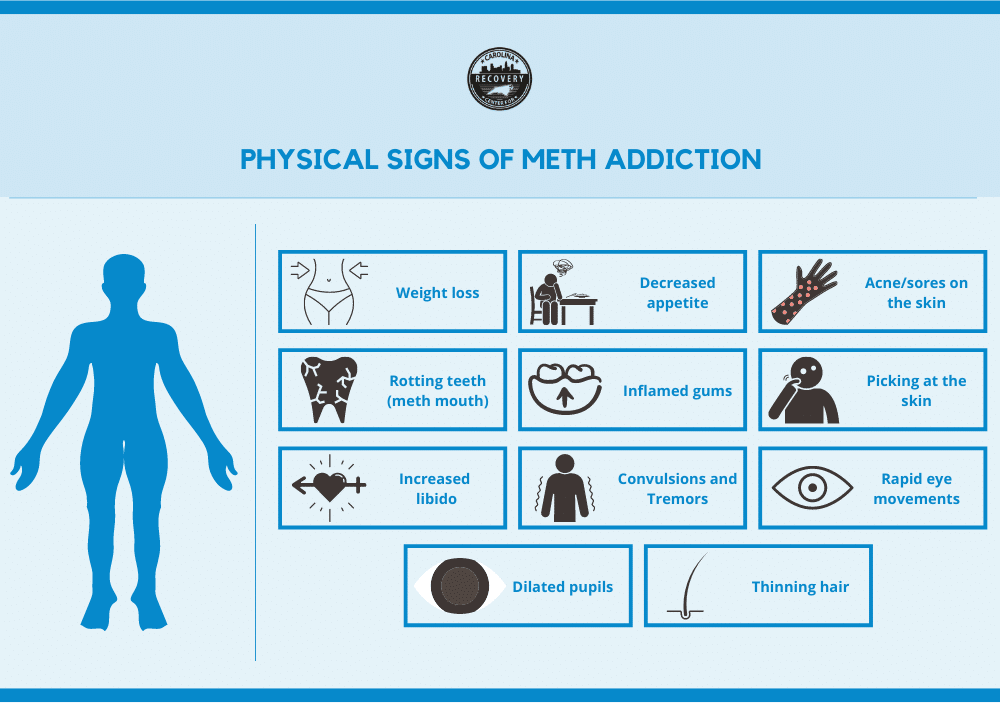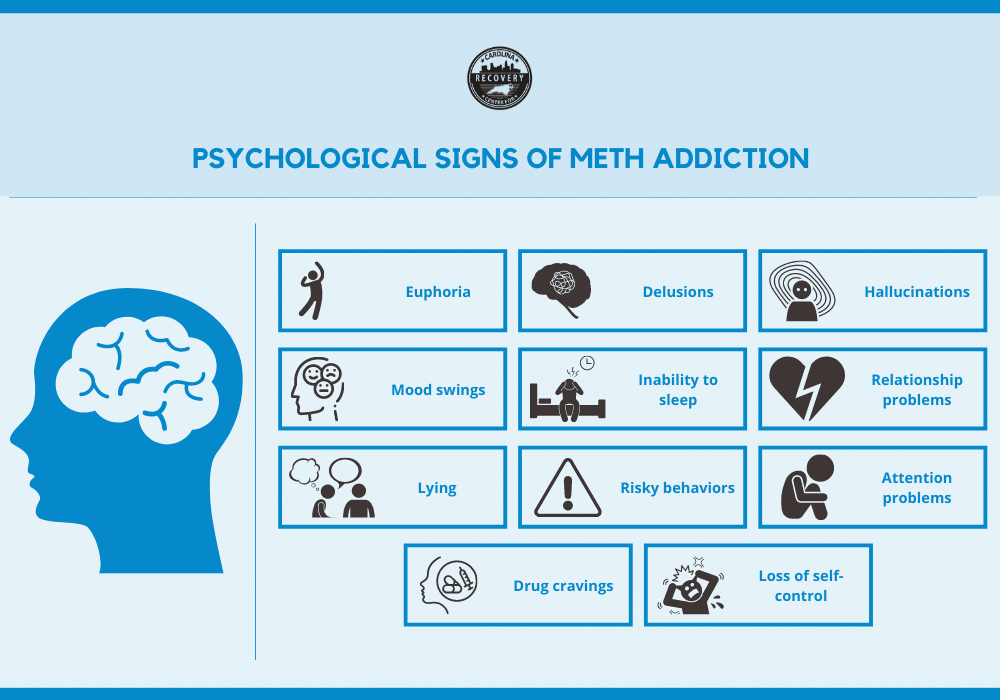Finding Treatment for Meth Addiction

Medically Verified: 2/1/24
Medical Reviewer
Chief Editor

All of the information on this page has been reviewed and verified by a certified addiction professional.
Finding Treatment for Meth Addiction
Meth addiction happens quickly. The drug is so powerful and habit-forming, that it doesn’t take long to fall into a full-blown addiction. Meth abuse damages specific receptors in the brain that are connected with feelings of pleasure, so getting sober isn’t always easy. However, recovery starts with detox and treatment.
Meth abuse ultimately leads to extreme changes in appearance and behaviors. It comes with many noticeable side effects that are concerning to friends and family. Since the drug is so addictive, people aren’t always willing to go to rehab. Meth produces an intense high, but not without consequence. In the end, a lot of meth addicts turn to treatment.

Signs of Meth Addiction
Meth is smoked, snorted, or injected, but it almost always produces a euphoric and intense high. It directly affects the area of the brain that controls dopamine – a chemical that is responsible for one’s mood and energy levels. The drug causes excess energy, focus, and euphoria. However, in large doses, it can lead to a heart attack or stroke. In the long run, meth addiction causes organ damage and even death.
People who are addicted to meth are usually unpredictable. One day they may seem happy and outgoing, but the next day they may appear agitated or violent. In addition, there are many physical and psychological signs of meth addiction that are worrisome. [1]


Physical signs of meth addiction:
- Weight loss
- Not feeling hungry
- Acne or sores on the skin
- Rotting teeth (meth mouth)
- Inflamed gums
- Scratching and picking at the skin
- Increased libido
- Convulsions and termors
- Rapid eye movements
- Dilated pupils
- Thinning hair
Psychological signs of meth addiction:
- Euphoria
- Delusions
- Hallucinations
- Mood swings
- Inability to sleep
- Relationship troubles
- Lying to loved ones
- Risky/illegal behaviors
- Attention problems
- Cravings for meth
- Loss of self-control
After meth wears off, users often experience a comedown consisting of fatigue, irritability, and depression. Furthermore, the drug is very addictive, so many people go to extreme lengths to get more drugs and avoid getting sober. Because of this, many people who have loved ones suffering from meth addiction turn to an intervention for help. Sometimes, interventions are the best bet if you want a loved one to go to a meth treatment center.[2]
Interventions for an Addicted Loved One
When a loved one is battling meth addiction and refusing treatment, it is scary to stand by and watch. After all, meth causes devastating effects on the mind and body. Loved ones may feel a sense of hopelessness. However, staging an intervention is an effective way to convince a loved one to get help from a meth treatment center.
It isn’t easy to confront someone who is suffering from addiction. Meth addicts, in particular, may become especially hostile when confronted about their drug use. As a result, interventions are usually uncomfortable and scary. Instead of going at it alone, an addiction specialist can facilitate the process. Friends and family mean well, but this is a tricky situation that is most effective when guided by a professional.
Addiction interventionists show people who suffer from meth addiction how their actions and behaviors hurt the people around them. Then, family members write letters or share with their loved one how they feel and why they want their loved one to get meth treatment. In the end, the ultimate goal of an intervention is to get the person struggling to realize and accept the help that is offered to them.
Inpatient and Outpatient Rehab
Once your loved one has accepted help, it’s time to find a meth treatment center that meets his or her needs. Meth treatment is challenging. After all, you have to treat the physical and mental aspects of the addiction. You will want a treatment center that you can rely on. This is more than a doctor’s visit – this is your loved one’s life. There are two primary types of treatment to consider: inpatient and outpatient.
Inpatient meth treatment is a better option for people who have abused meth for long periods of time and are unable to stop on their own. This residential type of rehab offers a safe place with around-the-clock supervision and support. Inpatient environments remove individuals from outside stressors, triggers, and temptations. Outpatient meth treatment, on the other hand, is a good option for people with mild to moderate addictions or people who have obligations that they cannot leave behind, such as work or family. These programs are part-time, allowing individuals to get the counseling and treatment needed to stay sober while still being able to tend to daily responsibilities.
Both types of treatment consist of behavioral therapy and counseling. Therapists help patients identify and understand the roots of their addictions. In addition, therapists and peers provide the emotional support needed to work through these issues and navigate early sobriety. Behavioral therapies teach patients how to cope with their emotions as well as how to change the behavioral patterns that are associated with meth abuse. Using the tools learned in meth treatment, individuals can live a happy and sober life.
Get Meth Treatment Today
The thought of letting go of addiction is scary at first. However, there is hope – recovery is completely possible for anyone who wants it. With the help of a trusted meth treatment center and ongoing support, individuals will learn how to leave their drug abuse in the past. If you or a loved one is suffering from meth addiction, reach out for help from a meth treatment center near you today.
References:

